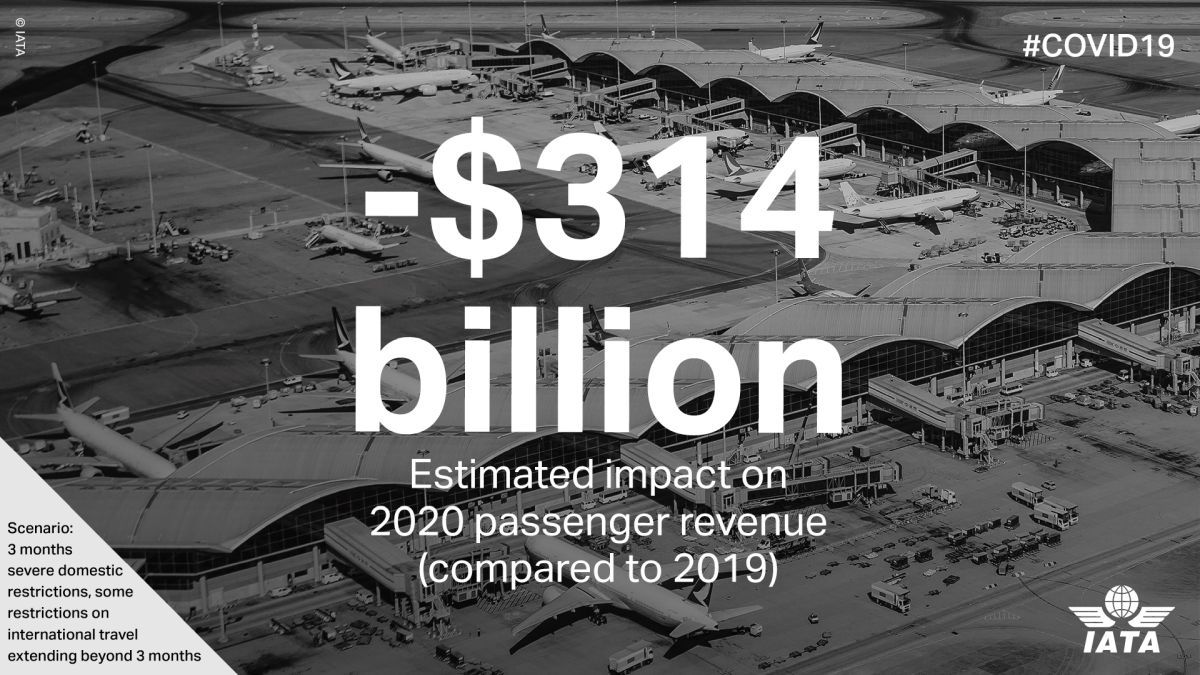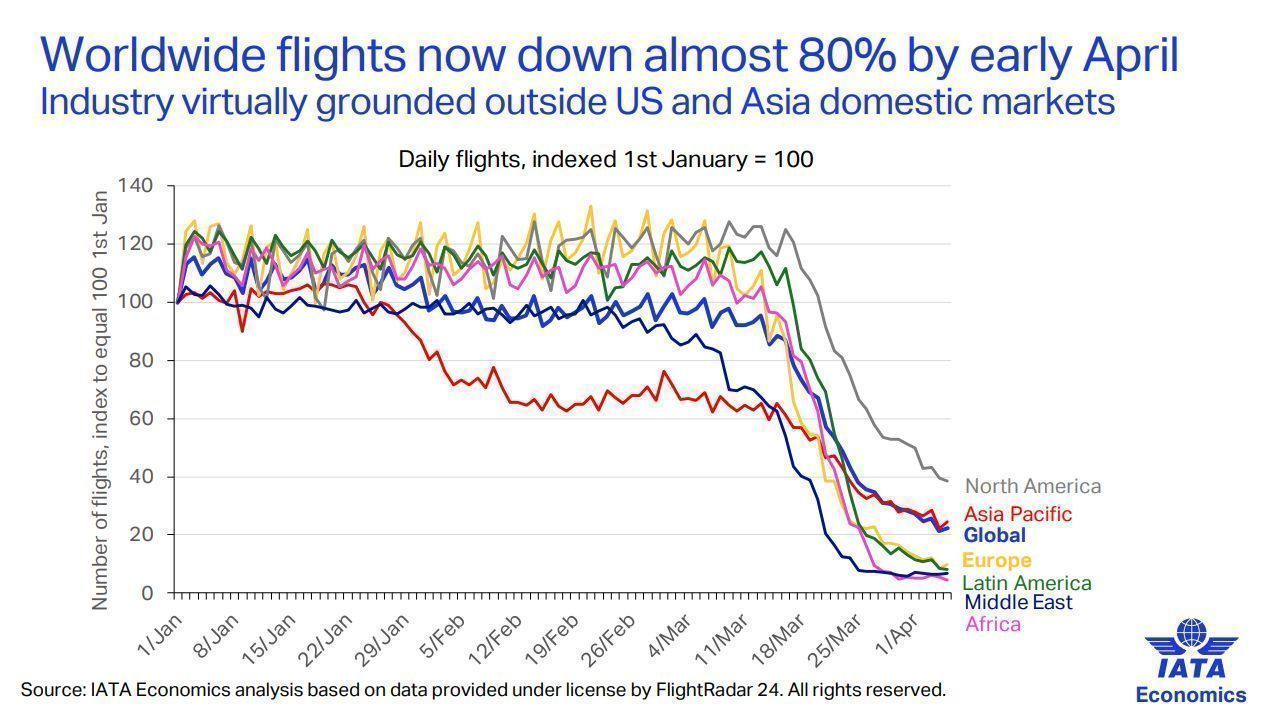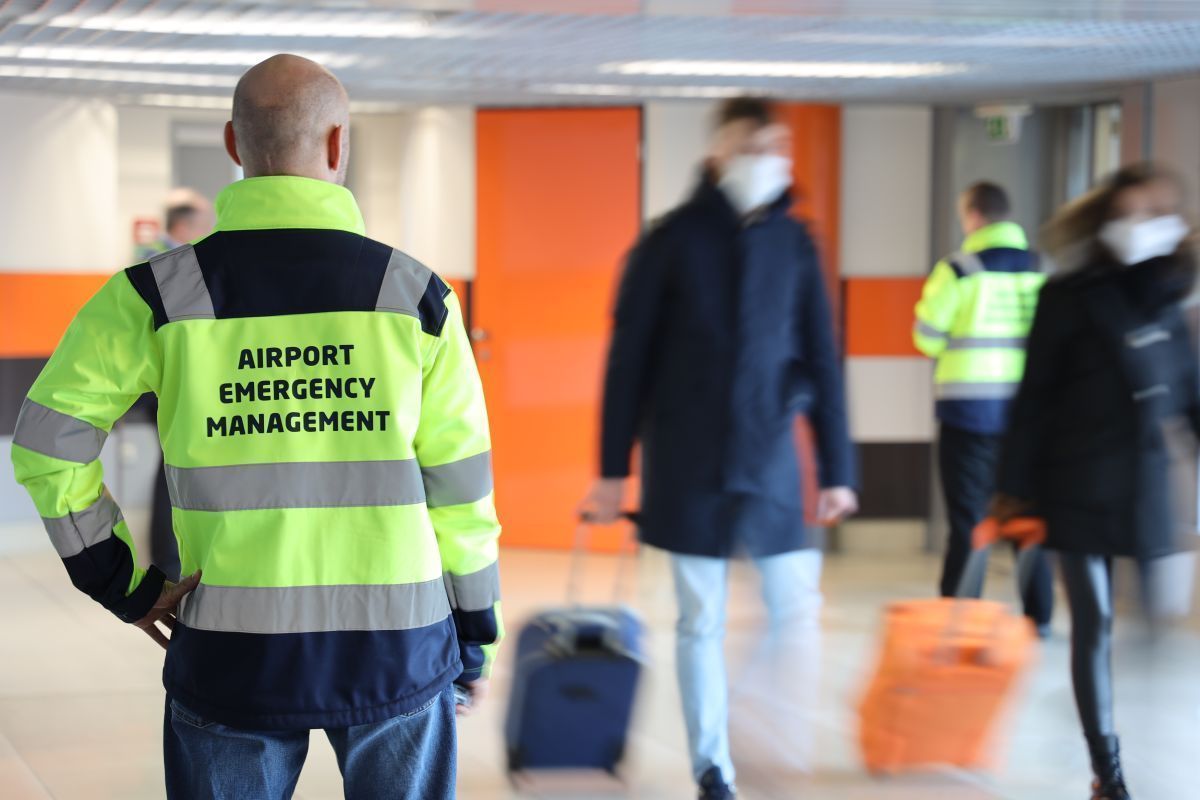Covid-19 May Deliver $314bn Blow to Airline Revenues, Says IATA
Airline passenger revenues may drop by $314 billion in 2020 due to the coronavirus (Covid-19) crisis, according to an updated analysis by the International Air Transport Association (IATA).
The downturn sees full year passenger revenues plummet 55 percent compared to 2019, while traffic falls 48 percent.
“In other words, half our business disappears. That’s catastrophic,” said Alexandre de Juniac, IATA’s Director General and CEO, during a web media briefing on Tuesday.
On March 24 IATA estimated $252 billion in lost revenues (-44% vs. 2019) in a scenario with severe travel restrictions lasting three months.
The association’s updated figures reflect a significant deepening of the crisis since then, and reflect on severe domestic restrictions lasting three months and some restrictions on international travel extending beyond the initial three months.
IATA’s data shows that the two main elements driving full-year passenger demand (domestic and international) down are overall economic developments, as the world is heading for recession and travel restrictions by governments to limit the spread of Covid-19, which will deepen the impact of recession on demand for travel.
According to IATA, the economic shock of the COVID-19 crisis is expected to be at its most severe in Q2 when GDP is expected to shrink by 6 percent.
“Passenger demand closely follows GDP progression. Τhe impact of reduced economic activity in Q2 alone would result in an 8 percent fall in passenger demand in the third quarter,” IATA said.
Regarding travel restrictions, IATA sees the most severe impact expected to be in Q2.
As of early April, the number of flights globally was down 80 percent compared to 2019 in large part owing to severe travel restrictions imposed by governments to fight the spread of the coronavirus.
IATA said domestic markets could still see the start of an upturn in demand beginning in the third quarter in a first stage of lifting travel restrictions. International markets, however, will be slower to resume as it appears likely that governments will retain these travel restrictions longer.
Easing of lockdown measures is not a re-start for aviation
As underlined by de Juniac, individual country decisions cannot enable the restoration of international air services when other markets remain closed.
“China and South Korea – countries which have been successful in controlling the disease within their own borders – are now doubling down on international travel restrictions because they don’t want to risk importing a second outbreak,” de Juniac said.
“Governments re-opening their economies must have confidence that the disease is also under control in the countries they do business with. Otherwise they are not going to make travel easy or convenient.”
IATA continues to ask governments to make the viability of airlines a priority and has proposed a number of relief options including direct financial aid; loans, loan guarantees and support for the corporate bond market by governments or central banks; and tax relief.
“Airlines could burn through $61 billion of cash reserves in the second quarter alone. That puts at risk 25 million jobs dependent on aviation. And without urgent relief, many airlines will not survive to lead the economic recovery,” de Juniac stressed.








